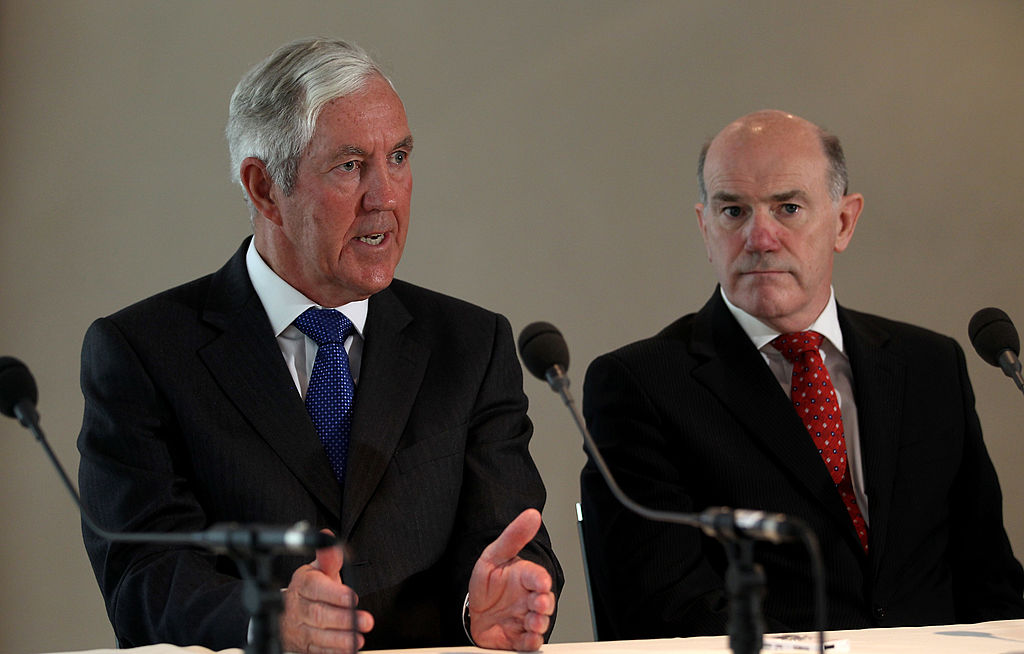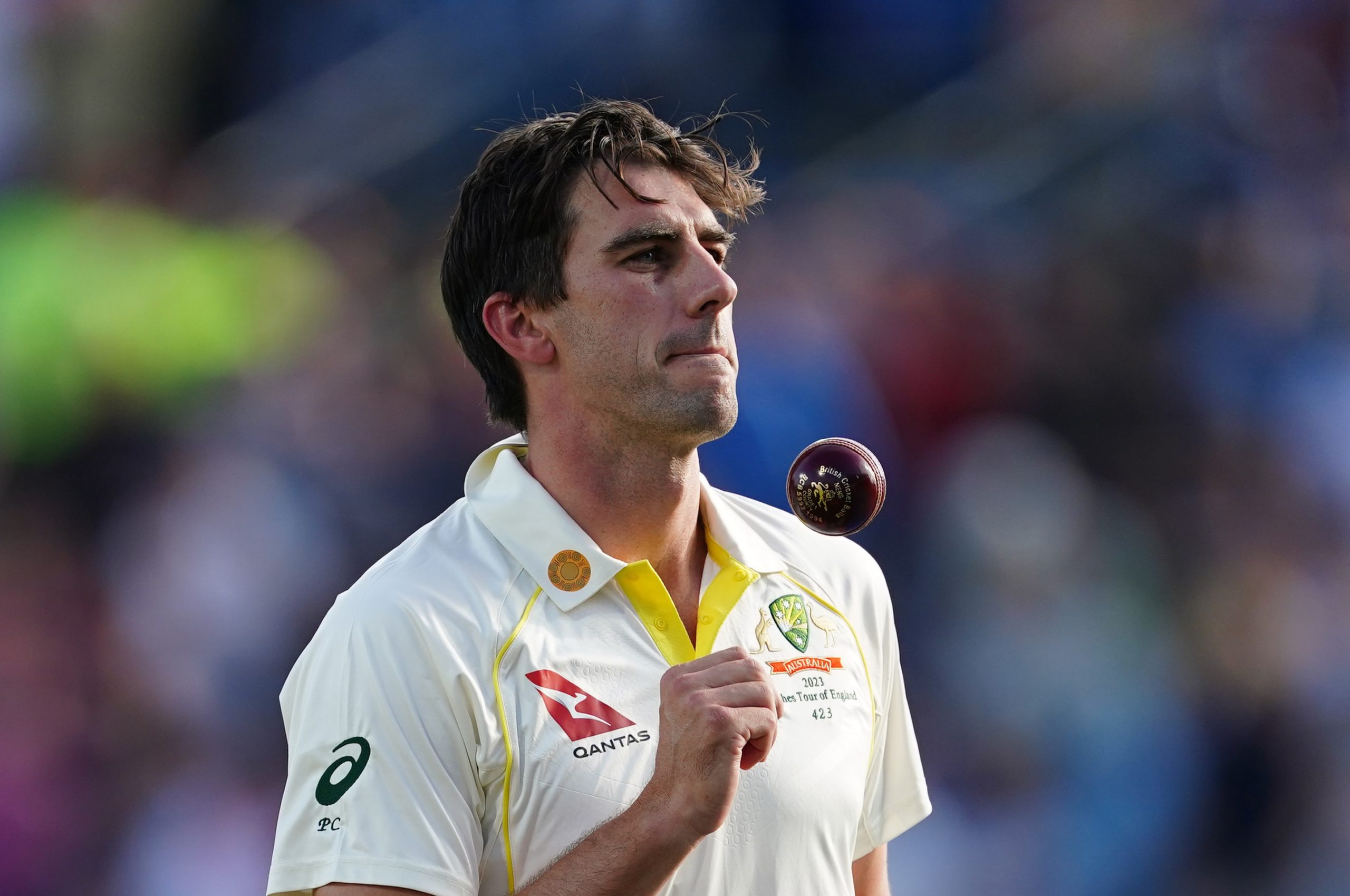
(Photo: Getty Images)
By Derek Pringle
The investigation into match-fixing in cricket by Al Jazeera makes for compelling viewing, in parts, though its sensational claim that leading England and Australian players were involved in spot fixing in two separate Tests against India, remains difficult to believe.
Filmed by a hidden camera over 18 months, Al Jazeera investigator, David Harrison, speaks to two Mumbai-based fixers, both of whom subsequently deny any wrongdoing. Three unrelated storylines are presented in a high-quality production which clearly involved time, planning and resource.
The first storyline involves the alleged ‘fixer’ Aneel Munawar, described as a middle-ranking operative who works for D-Company, a notorious and murky organisation with strong links to Asia’s criminal underworld.
In broken English, Munawar, claims he can fix 60-70 per cent of international matches and, that with enough money, cricket’s own anti-corruption officials can be made to look the other way. He is the one who allegedly ‘fixes’ the England and Australia Tests – the first against India at Chennai in 2016, which the hosts won; the second also against India at Ranchi in 2017, which was drawn.
The second and third storylines allegedly involve two ‘businessmen’ who claim they can influence Test matches by persuading the groundsman to produce a pitch to order – the binary choice being between a batsman’s pitch or a bowler’s one. The venue exposed is Galle stadium in Sri Lanka.
They also reveal plans to set up T20 tournaments in the United Arab Emirates for the purposes of fixing matches in order to profit from bets placed. They reveal a trio of players, two of them ex-internationals of vague pedigree from Pakistan and Sri Lanka, who will be in their pay to facilitate the proposed fixes.
David Richardson, the chief executive of the International Cricket Council, has admitted that cricket remains vulnerable to big crime syndicates trying to corrupt players and officials – attempting, in his words, to “destroy the integrity of the game”. With India’s illegal betting market said to be worth US$60 billion a year it is, he says, a fight that requires constant vigilance.
That Al Jazeera should find some of those involved so readily, should come as no surprise. What is surprising, though, is that none seemed to smell a rat, though the assistant manager of Galle stadium in Sri Lanka, was nervous enough at one stage to leave the hotel room as Harrison quizzed his paymasters about doctoring pitches.
Harrison dresses like a journalist which together with his occasionally interrogative style, used no doubt to ramp up the drama, should have rung some alarm bells. Obviously, clever editing means he could be asking his more probing questions to a brick wall rather than directly to the fixers, though it’s equally possible that having shown them a briefcase full of money, evidence that he and his backers had cash to flash, they were oblivious to any danger.
What also astonished, was the insouciant way such large amounts of money (between US$50,000-500,000) are supposedly shifted around, but then maybe that was what Munawar’s ever-present rucksack was for, the same one, it seems, used over 18 months of secret filming.
I’m going to concentrate here, given their potential newsworthiness, on the claims that Munawar persuaded three England players to score below a certain number of runs in a ten-over ‘bracket’ during a Test match, with the final over of that bracket going for fewer than two runs.
The day of the fix, the runs set by the bookies, the innings or even the position of those ten overs in the day’s play, are not revealed. What is revealed are Al Jazeera claims that Munawar’s prediction, in other words the script he allegedly gave to the batsmen on the day, was followed to the run.
Implied here is a precision to batting that is unrealistic even for the most talented international players. I mean, say he has batsmen A,B and C in his thrall and two of them get out before the bracket is secured. That brings in batsman D who is not in the bookie’s pay. He might hit a quick 30 and ruin everything. Anyone wagering a large sum would want a guarantee and not even the world’s best players can give those unless it is getting out for nought.
The other thing I don’t understand, and I profess to not being an expert on illegal betting markets, is why would experienced bookies, who are setting the brackets, accept bets on slow scoring in Test matches when it is par for the course in that format?
It’s just one of many things that doesn’t add up. I mean, why would England and Australian players, extremely well paid by any measure you might choose, place their careers in jeopardy for a one-off spot fix or, indeed, risk their liberty, the last few players caught fixing having gone to jail? At least we assume it was a one off given Harrison didn’t ask Munawar if the players, now he’d got them on the hook, had ever done it again.
The identities of the England players are not revealed though the programme does show out of focus action of three men batting, the frames cut off at the shoulders. Two are left-handed, one is right. Whether that has significance is not explained, only that the players in question have denied all accusations through their lawyers, with a further bout of refutation coming from the England and Wales Cricket Board.
The fact that Al Jazeera fails to name them or the Aussie duo accused, suggests that their evidence is not compelling. Still, the ICC are set to investigate the claims and have asked for unedited footage, to which Al Jazeera have complied.
The dangers of betting and fixing in cricket are ever present. To that end, Al Jazeera’s claims about doctoring pitches and the setting up of T20 tournaments in which to fix matches, all highlight areas of vulnerability in the game which could be exploited by fixers. But high-profile, well paid international cricketers being involved in such grubby deeds in Test matches? I have serious doubts.


















